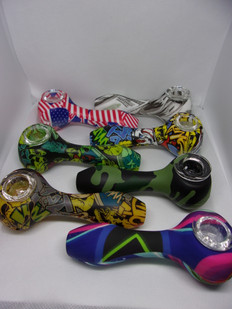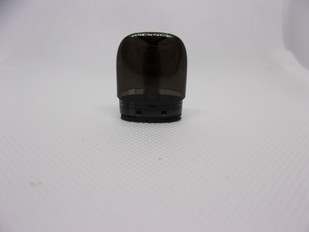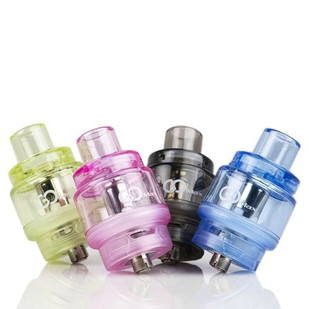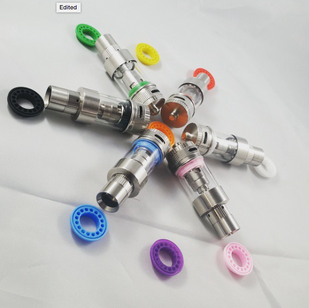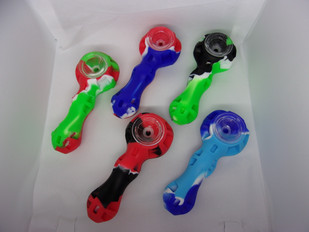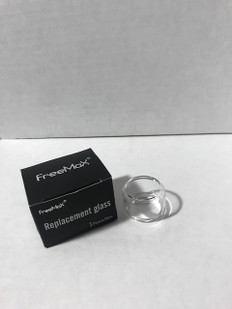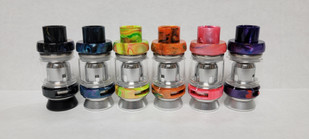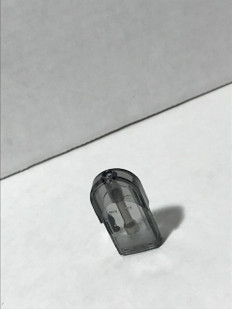- Home
- The Vape Mall Blog
- Update on the FDA Regulations for Vaping
Update on the FDA Regulations for Vaping
Posted by on

The vaping industry has changed a lot in the past couple of years. In just a short period of time, vaping technology has advanced tremendously. Many vape enthusiasts know the large, boxy vaping devices are becoming less popular as portable, all-in-one vaping devices are taking over.
Portable vaping devices such as JUUL have taken the vaping industry by storm.
These highly discreet, incredibly convenient and user-friendly devices have
revolutionized vaping as we know it. They're easy to carry around and can be
used virtually anywhere without being conspicuous.
Many vape enthusiasts have ditched their large mods and switched over to these
portable devices. Besides being easy to use and carry around, these devices
provide vapers with higher nicotine levels thanks to the e-liquid formulas that
are compatible with these devices. Made with nicotine salts rather than
freebase nicotine, these e-liquids provide a higher dose of nicotine per
puff.
Concerns About Teenage Vaping
While former cigarette smokers are
thrilled to be able to get that same nicotine buzz that they used to get from
analog cigarettes, others aren't so excited about this new technology.
Now that these portable vaping devices have become so widely popular, senators
are concerned about their effects on the population of teenagers in this
country. It's been known for a while that portable e-cigarettes and vaping
devices are much safer than tobacco cigarettes. Therefore, these products are
often used by cigarette smokers to kick the tobacco habit at last.
However, teenagers who have no prior smoking experience may be tempted to start
vaping simply because of the appeal of these products. Because of the wide range
of flavors that are used with these vaping devices, teenagers are attracted to
vaping despite having no prior addiction to nicotine. With flavors available
like cotton candy, fruit punch and vanilla custard, legislators are concerned
that these vaping products can get teenagers hooked on nicotine by enticing
them with tasty flavor creations.
The FDA and Vaping
Senators are urging the FDA to begin
regulating these portable devices and e-liquid products. The FDA stopped
reviewing new vaping products in 2016. Because these new portable devices have
emerged since then, senators are determined to convince the FDA to begin
reviewing these products as soon as possible as teenage vaping is on the
rise.
Senator Dick Durbin of Illinois is pushing for the FDA to ban e-liquid flavors
that appeal to minors. He and 13 other senators feel that vape juices that are
inspired by flavors like candies and popular desserts are encouraging teenagers
to pick up vaping even though nicotine is an addictive and potentially harmful
substance.
The 14 senators have written a letter to the FDA, anticipating a response by
the end of the month. In their letter, they stated that teenage vaping has
increased by 15 percent since 2011.
What This Means for the Vaping Industry
If these senators get their way,
it's possible that vape enthusiasts will no longer be able to enjoy a wide
range of e-liquid flavors. If the senators' goal is to ban flavors that appeal
to minors, that means that vape juice brands that produce e-juices that are
inspired by sweets may no longer be in business.
We Have To Continue To Fight
It's safe to say that the vaping industry is nervous about how the FDA will respond to this letter. If these senators successfully convince the FDA to ban flavored e-liquid products, the vaping industry will change dramatically.
 Loading... Please wait...
Loading... Please wait...



